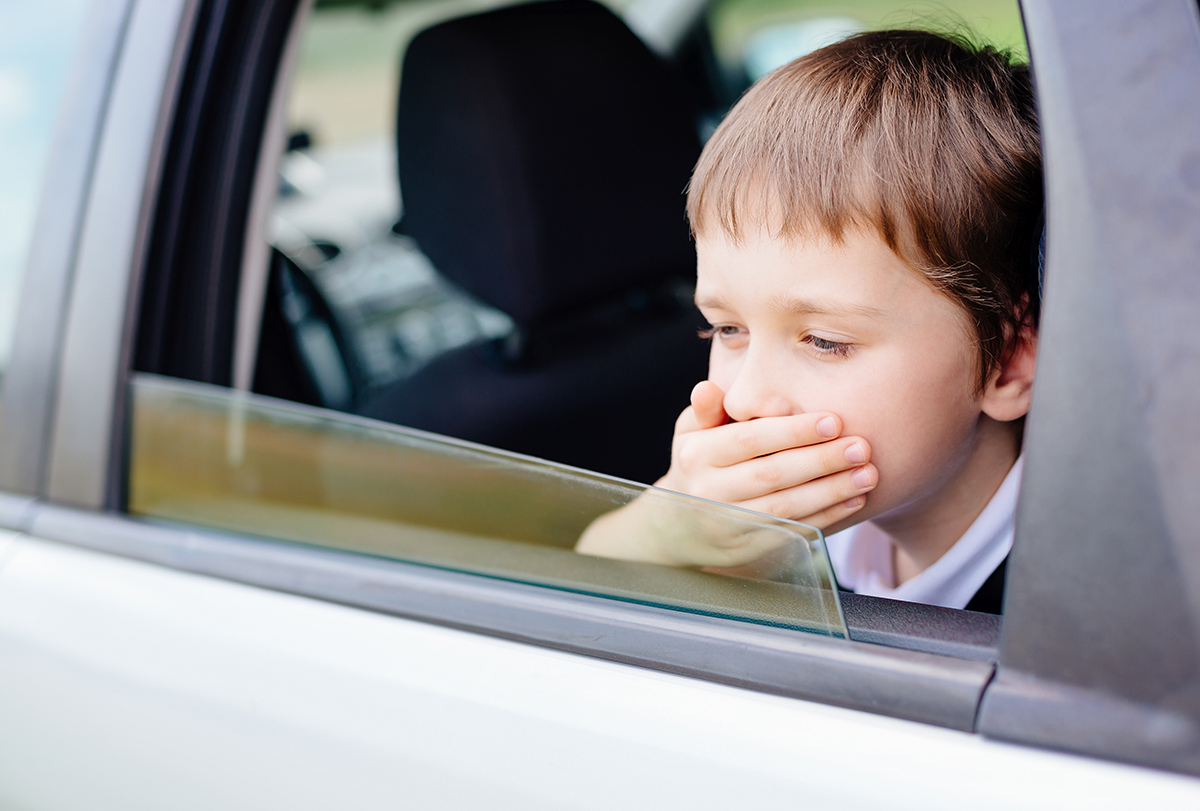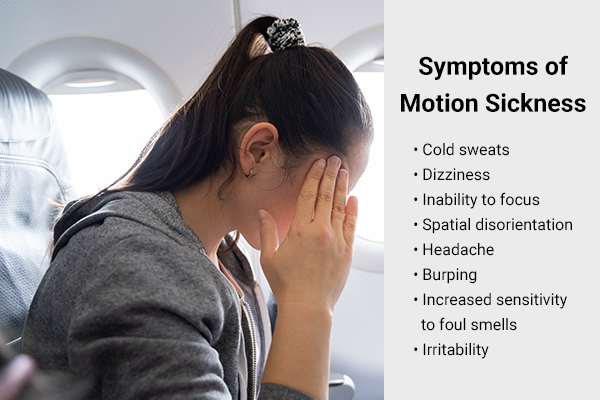In this article:
Motion sickness is a common but complicated phenomenon that makes you feel unwell while traveling in a car, plane, boat, train, or bus. The repeated movement of your mode of transportation while your body remains in the same place can send your brain into a tizzy.

Sea travel is known to induce the worst form of motion sickness because of the constant and sometimes drastic up-and-down movement of the waves. In severe cases, it can even affect seasoned crew members that have been out on the sea quite often. (1)
Cause of Motion Sickness
Motion sickness usually occurs in response to low-frequency lateral and vertical motions during air, sea, or land transportation, but it can also be triggered by amusement park rides and virtual simulator motion such as in video games. (2) Thus, it can be the result of both real and perceived motion.
When you are inside a moving vehicle, ride, or simulation, your surroundings are in motion even though your body is stationary. In other words, you see yourself moving even though your body is in one place.
This contrast between actual and expected motion makes your sensory organs send conflicting signals to the brain, which results in motion sickness. Your eyes see you moving but your inner ear does not sense the movement. Both of them send confusing messages to the brain, which disturbs your body’s balance and makes you feel queasy. (3)
Symptoms of Motion Sickness
Motion sickness usually begins with the sudden onset of nausea, which can ultimately make you throw up. It is characterized by other unpleasant symptoms including: (1)

- Cold sweats
- Dizziness
- Inability to focus
- Spatial disorientation
- Headache
- Burping
- Increased sensitivity to foul smells
- Irritability
- Frequent yawning or sighing
- Excessive salivation
- Eye strain
- Hazy vision
- Drowsiness
- Hyperventilation
Getting some cool air may help soothe the symptoms but only for a temporary period.
Treatment for Motion Sickness
You can take certain medications if you are prone to severe motion sickness, but they work best when clubbed with behavioral and environmental modifications.
Here are some common medications used for treating motion sickness:
- Scopolamine is the primary intervention to prevent nausea and vomiting associated with motion sickness. It is only available with a prescription and has to be used a few hours before traveling. You can get it in the form of a cream or adhesive patch, both of which have to be applied to clean, dry, intact skin behind the ear. This medication inhibits secretions in the stomach and intestines while also blocking certain nerve signals that trigger vomiting. Doctors do not recommend this drug for children under 12 years old, and it should be used with caution in the elderly.
- Prescription as well as OTC antihistamines are used to reduce motion sickness. They subdue the nervous system and help induce slight drowsiness, which eases motion sickness. (2)
- Benzodiazepines are depressant drugs that are commonly used to treat anxiety and sleep disorders. They have a calming and tranquilizing effect on the body that can help avert motion sickness, but they are usually administered in severe cases.
- Medications used for morning sickness are felt to be safe for use in motion sickness, including meclizine and dimenhydrinate.
You should try these medications at home first to familiarize yourself with their potential side effects. (4)(5)
Diagnosing Motion Sickness
Doctors generally diagnose motion sickness based on the situation that triggered it and the symptoms experienced by the patient.
When to See a Doctor
Motion sickness goes away after the journey is over, but if you experience chest pain, hearing loss, or continue to vomit, you need to consult a doctor.
The doctor will ask you about the medicines you are taking, what you are drinking and eating, your habits before traveling, and the age at which the condition started.
Final Word
Traveling is a part of life, but motion sickness can make it extremely difficult. So even though this condition doesn’t pose any serious threat to your health, it can still be quite a handicap.
If you suffer from frequent or severe motion sickness, it’s best to consult a doctor about the best course of treatment.
 Continue ReadingHow to Avoid and Reduce Motion Sickness
Continue ReadingHow to Avoid and Reduce Motion Sickness
- Was this article helpful?
- YES, THANKS!NOT REALLY


